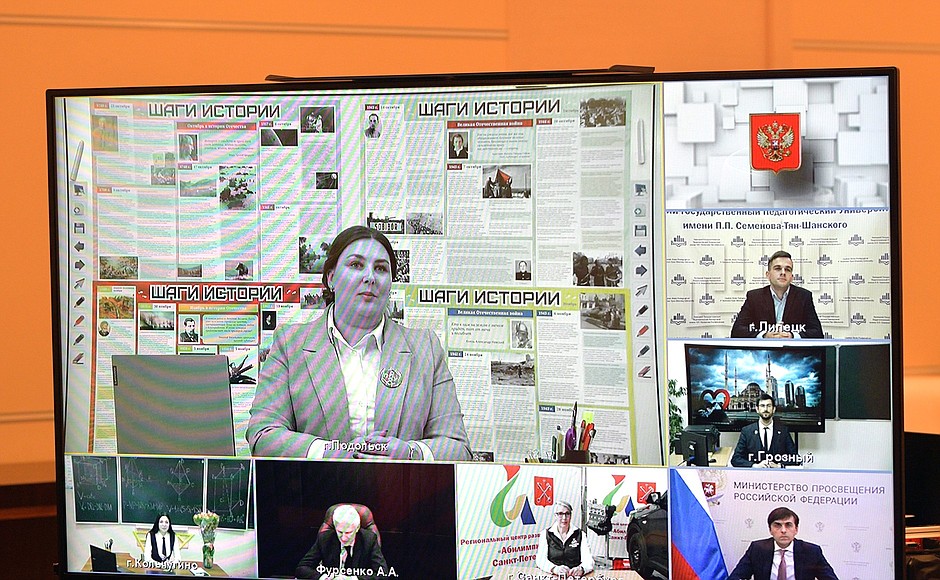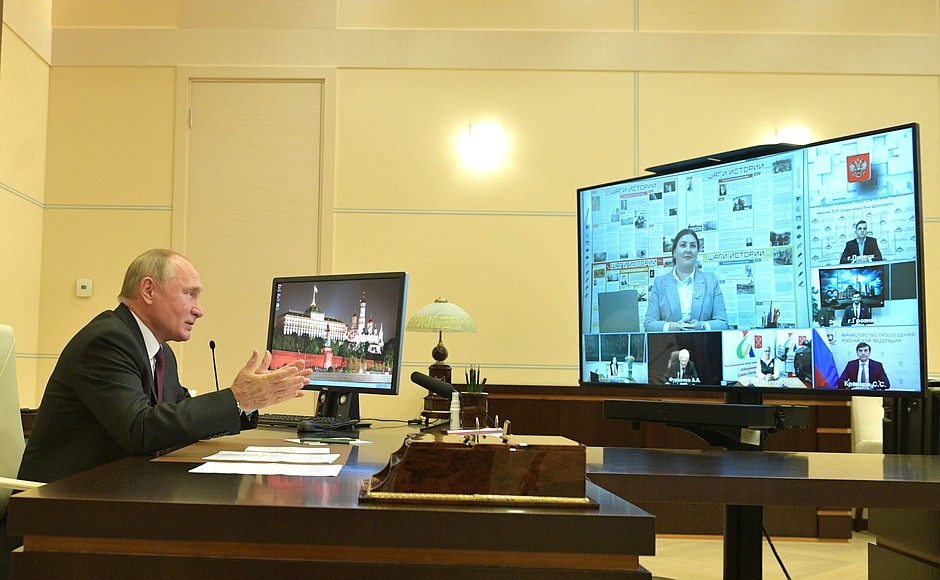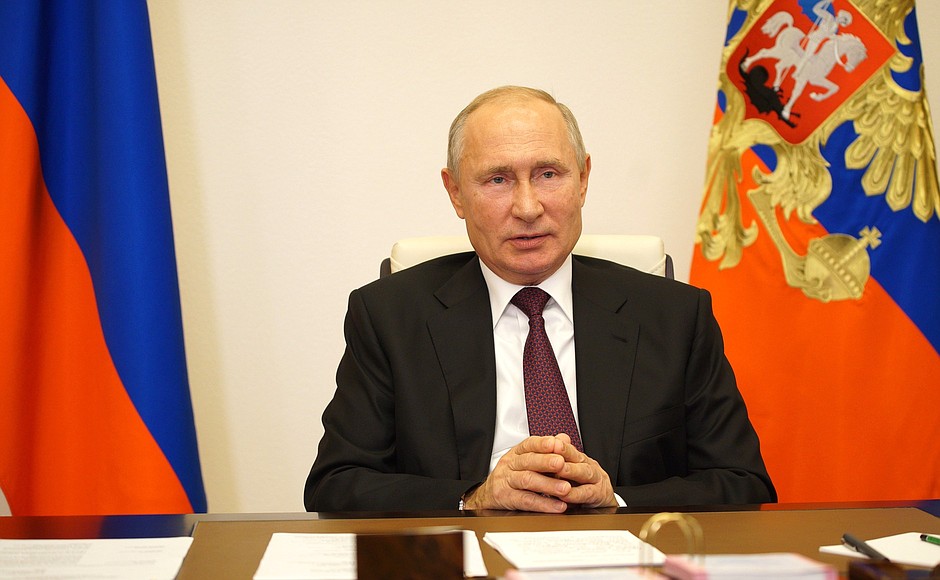President of Russia Vladimir Putin: Friends, good afternoon.
I welcome you all and I am happy to see you. Of course, today, on October 5 – Teacher’s Day – first of all I would like to congratulate the teachers and students at pedagogical universities and everyone who chose the noble and responsible goal to be a mentor, to channel your knowledge and experience, to help discover and not lose the talent that can be found in almost every child, to serve as an example and show the endless world with its complex questions and teach respect for our ancestors’ memory and a love of Russia in the growing generation.
Teachers have always been treated with special respect in Russia. All of us have fully realised how great and important the work of teachers is, along with medical workers and other people whose jobs are essential for society during the difficult times of the pandemic, especially during the months of mandatory restrictions. I understand they have been difficult for everyone: school students, parents and teachers. But you passed this with flying colours, as a team. In a short period of time, teachers established academic activities and taught remotely using advanced technologies and approaches.
I would also like to say another thing. The problems of education and of maintaining the level of education remain quite acute all over the world, especially during the pandemic. The Secretary-General of the United Nations noted this and spoke with concern about the decreasing level of education in many countries due to the pandemic and restrictions. This has not happened in Russia.
Thanks to your efforts, we have managed to remain loyal to our best traditions and the behests of your predecessors, our outstanding teachers. Moreover, we have revealed the high mission of the homeroom teacher in a completely new way for our entire society. Shaping the character and using the skills to teach life values to pupils, understanding their feelings and sharing their hobbies and interests – these were difficult tasks. Teachers had to make children feel like they are in a single class even when they were sitting at home at their computer, to give them an impetus and the motivation to study.
I am convinced that the decision on federal bonus payments for homeroom teachers, which we made last September, was very helpful and absolutely justified. It was well deserved. This is directly confirmed by your sincere devotion to your work in these uneasy times.
I know that you, your colleagues and many of our teachers have not limited themselves to the formal requirements of the education standards. They did not just work “from 9-to-5.” This is probably rarely the case at schools, but even in this difficult time, teachers have constantly been in touch with their pupils and have tried to encourage them: they corresponded with them beyond the academic curriculum, advised them, hold online meetings and even watched films together. You have devoted your personal time to this. In fact, you have acted like true volunteers, not just teachers, but their older friends and mentors.
I know that your pupils will remember for a long time, for their entire lives, the lessons of your heartfelt support and compassion. As established adults, we remember our favourite teachers and beloved mentors who played a major role in our destinies. They showed, through personal example, the importance of a humane attitude, of decency, compassion and mutual aid, unconditional love and respect for children.
What else would I like to say? The results of the national Teacher of the Year contest are usually announced in early October but this time it will be held a bit later for obvious reasons. I believe that by and large, all teachers who worked during the epidemic deserve this title because they had to bear a heavier burden. We understand this. But everything is working out largely due to your efforts. The domestic education system is coping with the challenges it faces. Thank you so very much.
Now, using this experience and our new competences, we must take a big step forward in developing Russian schools. These competences were developing earlier, but during the pandemic, everything has worked out differently. Of course, we learned to understand better the bottlenecks and problems we have. Regrettably, we still have some for now. This is primarily the issue of equipment and using advanced technology, without which it is already difficult to imagine the academic process.
Overall, we must create very modern and appropriate conditions for the education of children and, of course, for the life and work of their teachers in cities and small towns, in rural areas, everywhere. In this context, I will repeat that the talk about closing schools and the alleged complete conversion to distance learning in the future is not serious because regardless of technological developments, it is joint work, creativity and direct communication between teachers and their pupils that produce high quality education.
No matter how lofty it sounds, we say all the time that the future of the country, the future of our homeland depends on young people, and the quality, the level of training of these young people depends on school teachers. Therefore, the future of our country largely depends on you, too.
We need a strong, modern, self-respecting society. I will note in this connection that even during this incomplete year of the District Teacher programme, over 1,500 teachers came to work in towns and villages, including those in the Far East. I hope the participants in this programme are connected with us now; I would like to ask them to share their ideas and experience in their work “on the ground.”
Using this opportunity, I would like to address the students in senior courses of pedagogical and other universities. Please, come work in schools. Your right to conduct classes, vocational groups and sports sections is now fixed by law. I am sure you will find a common language with young people, win authority and their trust and will have an opportunity to learn from your experienced colleagues. This continuity and link between generations will certainly facilitate the development of domestic education.
Friends,
Each of you has successful experience in your profession and education in your specialty. I would like to ask you to tell us what problems you see in education today and what must be done to ensure genuine equality of educational opportunities for all children in our country so that all of them can find their talents and start their lives with confidence. This is our common task. Let us talk about this.
<…>


